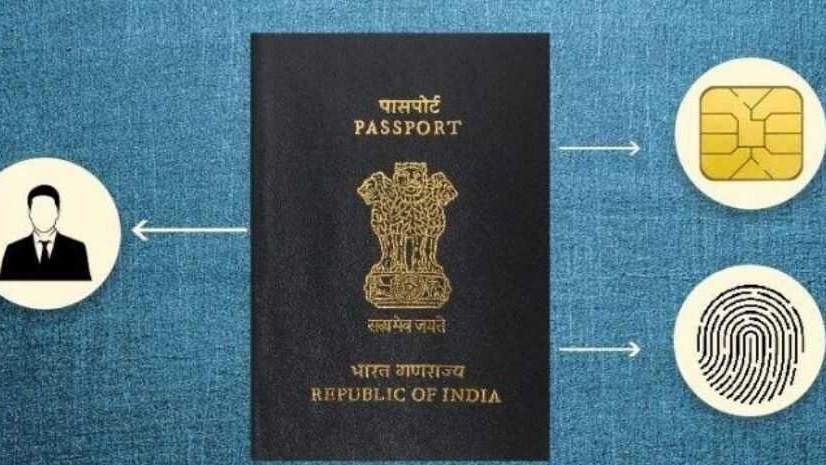India to have ePassports soon - But are they safe?
They will sport biometric chips

India will soon start issuing ePassports which will use Radio-Frequency Identification (RFID) and biometrics chip and be in line with the standards of the International Civil Aviation Organisation (ICAO).
Tech major Tata Consultancy Service (TCS), which is handling the government's Passport Seva Program, has said it is developing innovative new solutions to enable the issuance of ePassports.
The software for the e-passports has been helmed by the National Informatics Centre (NIC) in conjunction with IIT Kanpur. The India Security Press, Nashik will procure electronic contactless inlays for manufacturing ePassports. Once the procurement process is completed, the issuance of the new passports would begin.
How will ePassports work?

More than 100 countries, including the US, the UK, and Germany, already have the biometric passport system. And more countries, including India, are moving towards it as it enhances security, easy travel and smooth immigration process. It is said that over 490 million ePassports are in circulation world over.
Passports of all countries have to adhere to the UN’s ICAO standard, which allows both machine-readable and chip-based passports. The existing Indian passport is a printed booklet that falls under the category of machine-readable passports. And now India is seeking to move to the other category. All ePassports can be recognized by the internationally recognized symbol that is printed on the front cover.
ePassports use contactless smart card technology, including a microprocessor chip and antenna embedded in the front or back cover or centre page of the passport. The chip in ePassports will contain personal data, including the biographical information of the holder. It will also have a digital signature unique to each country that can be verified using a certificate.
ePassports will also have security features that will disallow unauthorized data transfer through RFID. Officials say that the e-passports will also deter identity theft and forgery, as the system will be able to identify it. Basically, it is expected to make the process at the immigration counter smoother and faster.
Get daily insight, inspiration and deals in your inbox
Sign up for breaking news, reviews, opinion, top tech deals, and more.
"The ePassport will enhance the security of passports, eliminate duplication, eliminate data tampering and will be used by border control authorities for monitoring the entry and exit of passengers," the government said.
ePassports and digital safety
These days when you talk of biometric details, you cannot but speak of security. But straight off the bat, it can be said ePassports are no less secure than the existing ones. So safety fears are mostly misplaced.
The embedded chip in an ePassport is a secure microcontroller with advanced cryptography and built-in sensors to detect attacks. When the ePassport is personalized and issued, the data which has been written to the chip is signed by the issuing authority using their country signing key. Once manufactured and personalized, no information can be changed as ePassports are designed to be read-only.
Anyone wanting to forge an ePassport would need to have the chip, the data, and all of the manufacturing components and know-how.
Also, if an ePassport is stolen or lost, it is easier to track whether it is being used or not.
But did you know ePassports are not new in India?
India 🇮🇳 to soon introduce next-gen #ePassport for citizens- secure #biometric data- smooth passage through #immigration posts globally- @icao compliant- produced at India Security Press, Nashik- #eGovernance @passportsevamea @MEAIndia #AzadiKaAmritMahotsav pic.twitter.com/tmMjhvvb9WJanuary 5, 2022
Having said this, it may be a surprise to know that India has already issued around 20,000 ePassports. That is because in 2008, on the request of MEA (Ministry of External affairs), the NIC had conducted a pilot project for the issuance of e-passports. About 20,000 ePassports for diplomats and officials have already been issued.
The thing is the government is now mainstreaming the whole thing for general public, too as part of its Digital India campaign.
The government has said that there will be no change in the application process for ePassports. Once the government finishes the backend technological processes, applicants will start receiving ePassports. Till such time the regular passports would only be issued. The government has not announced any specific date for the issuance of ePassports.
"ePassports and readers at the border inspection system must be able to communicate with each other. Interoperability testing of electronic passports is a process that starts typically with the specification of standards and continues with testing. Interoperability tests for ePassports are performed to ensure international interoperability," the MEA has said.
Aside from ePassports, the government is also mulling issuing digital passports that holders can store on their smartphones. But that is still some time away.
Want to know about the latest happenings in tech? Follow TechRadar India on Twitter, Facebook and Instagram!

Over three decades as a journalist covering current affairs, politics, sports and now technology. Former Editor of News Today, writer of humour columns across publications and a hardcore cricket and cinema enthusiast. He writes about technology trends and suggest movies and shows to watch on OTT platforms.